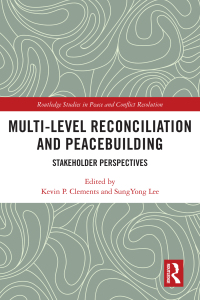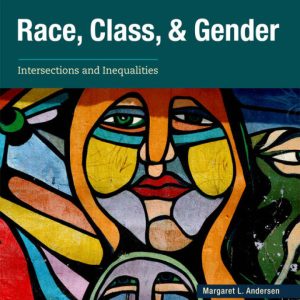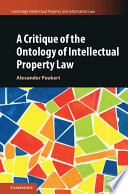Buy Multi-Level Reconciliation and Peacebuilding: Stakeholder Perspectives 1st Edition PDF ebook by author Kevin P. Clements; Sungyong Lee – published by Routledge in 2021 and save up to 80% compared to the print version of this textbook. With PDF version of this textbook, not only save you money, you can also highlight, add text, underline add post-it notes, bookmarks to pages, instantly search for the major terms or chapter titles, etc.
You can search our site for other versions of the Multi-Level Reconciliation and Peacebuilding: Stakeholder Perspectives 1st Edition PDF ebook. You can also search for others PDF ebooks from publisher Routledge, as well as from your favorite authors. We have thousands of online textbooks and course materials (mostly in PDF) that you can download immediately after purchase.
Note: e-textBooks do not come with access codes, CDs/DVDs, workbooks, and other supplemental items.
eBook Details:
Full title: Multi-Level Reconciliation and Peacebuilding: Stakeholder Perspectives 1st Edition
Edition: 1st
Copyright year: 2021
Publisher: Routledge
Author: Kevin P. Clements; Sungyong Lee
ISBN: 9781003017851
Format: PDF
Description of Multi-Level Reconciliation and Peacebuilding: Stakeholder Perspectives 1st Edition:
“This edited volume examines the group dynamics of social reconciliation in conflict-affected societies by adopting ideas developed in social psychology and the ‘everyday peace’ discourse in peace and conflict studies. The book revisits the intra- and inter-group dynamics of social reconciliation in conflict-affected societies, which have been largely marginalised in mainstream peacebuilding debates. By applying social psychological perspectives and the discourse of everyday peace, the chapters explore the everyday experience of community actors engaged in social and political reconciliation. The first part of the volume introduces conceptual and theoretical studies that focus on the pros and cons of state-level reconciliation and their outcomes, while presenting theoretical insights into dialogical processes upon which reconciliation studies can develop further. The second part presents a series of empirical case studies from around the world, which examine the process of social reconciliation at community levels through the lens of social psychology and discourse analysis. This book will be of much interest to students of peacebuilding, conflict resolution, social psychology, discourse analysis and International Relations in general”–





